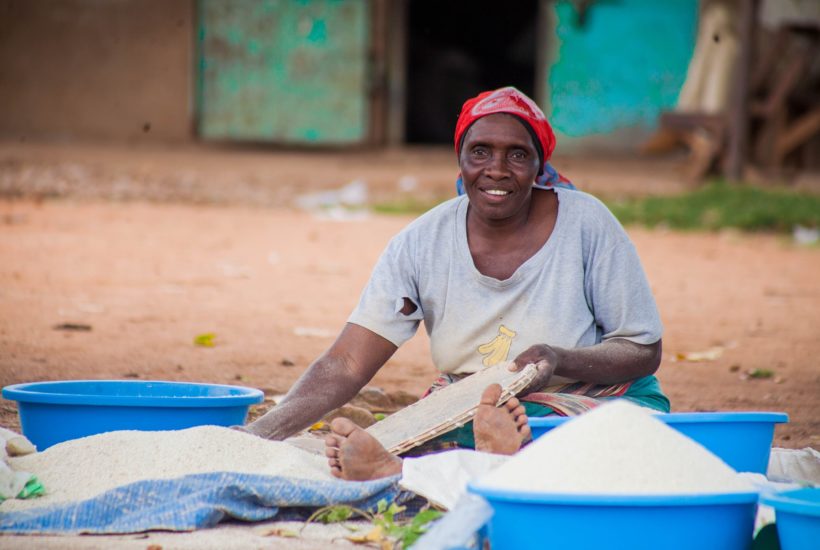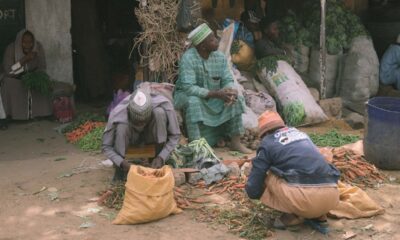Africa
New study on the economic impact of the pandemic in Burkina Faso
A recent study conducted in Burkina Faso showed that the pandemic has negative consequences on income and food security in households across the country. Six out of 10 women reported having experienced increased food insecurity in their households since the restrictions came into effect. Moreover, nine out of 10 are concerned about the impact of the disease on their household income in the future.

The coronavirus pandemic has a negative impact on the income of families in Burkina Faso. According to a study carried out by the Institut Supérieur des Sciences de la Population (ISSP) of Joseph Ki-Zerbo University in partnership with the country office of the American NGO, Jhpiego, 68% of the women surveyed felt food insecure in their households.
This is no longer a secret. The new coronavirus disease, in addition to our health and social habits, has a negative effect on the economies of countries and households. This is the observation made by the ISSP in its study carried out with the support of the NGO Jhpiego.
“Covid-19 in Burkina Faso: Knowledge, attitudes and practices of populations, socio-economic impact on households and access to health services” is the title of the study. For fifteen days, from June 25th to July 10th 2020, 35 interviewers collected information from 3,525 women from the Center (1,118), Hauts-Bassins (618) and other regions (1,789) of Burkina Faso.
If you want to find more details about the study conducted in Burkina Faso in order to assess the impact of the new coronavirus on households and their income and food security, download for free the Born2Invest mobile app. Our companion app brings you the latest economic news in the world for you to be the first to know what happens in the world. Our app has no limit on how many news you can read and is available for both Android and iOS devices.
A good knowledge of the disease is very important
Data collection was conducted by telephone. It was found that the majority of the population referred to the radio and health workers for information. Informed of the existence of the disease, seven out of ten households had a hand-washing device.
Nearly 95% of the respondents said they knew the four barrier gestures (avoid shaking hands, wash hands with soap, wear a mask, and practice physical distancing). For this last barrier measure, seven out of ten women were able to comply with it. The other women, because of health care, visiting relatives, the market, fetching water, were unable to respect physical distancing.
Adverse economic effects on households
According to the study, the Coronavirus has had a great impact on household incomes, due to government restrictions, plunging some into food insecurity. For example, six out of 10 women reported having experienced increased food insecurity in their households since the restrictions came into effect.
However, more women, nine out of 10, are concerned about the impact of the disease on their household income in the future.
For Dr Abdramane Soura, Director of ISSP, the results of the study will provide the government and the actors involved in the fight against the Coronavirus with an added value in the response policy. According to Dr. Jérémie Zoungrana, the battle against the disease can be won if its impact on people’s lives is grasped.
In the fight, the government will have to increase awareness because 17% of respondents still believe that Coronavirus is a disease that only affects the rich part of the population.
__
(Featured image by ambrosewatanda via Pixabay)
DISCLAIMER: This article was written by a third party contributor and does not reflect the opinion of Born2Invest, its management, staff or its associates. Please review our disclaimer for more information.
This article may include forward-looking statements. These forward-looking statements generally are identified by the words “believe,” “project,” “estimate,” “become,” “plan,” “will,” and similar expressions. These forward-looking statements involve known and unknown risks as well as uncertainties, including those discussed in the following cautionary statements and elsewhere in this article and on this site. Although the Company may believe that its expectations are based on reasonable assumptions, the actual results that the Company may achieve may differ materially from any forward-looking statements, which reflect the opinions of the management of the Company only as of the date hereof. Additionally, please make sure to read these important disclosures.
First published in lefaso.net, a third-party contributor translated and adapted the article from the original. In case of discrepancy, the original will prevail.
Although we made reasonable efforts to provide accurate translations, some parts may be incorrect. Born2Invest assumes no responsibility for errors, omissions or ambiguities in the translations provided on this website. Any person or entity relying on translated content does so at their own risk. Born2Invest is not responsible for losses caused by such reliance on the accuracy or reliability of translated information. If you wish to report an error or inaccuracy in the translation, we encourage you to contact us.

-

 Biotech1 week ago
Biotech1 week agoNew Molecular Clues Explain Aggressive Neuroblastoma and Point to Targeted Treatments
-

 Fintech6 days ago
Fintech6 days agoSwissHacks 2026 to Launch Inaugural Swiss FinTech Week in Zurich
-

 Impact Investing2 weeks ago
Impact Investing2 weeks agoClimate Losses Drive New Risk Training in Agriculture Led by Cineas and Asnacodi Italia
-

 Cannabis1 day ago
Cannabis1 day agoColombia Moves to Finalize Medicinal Cannabis Regulations by March
























